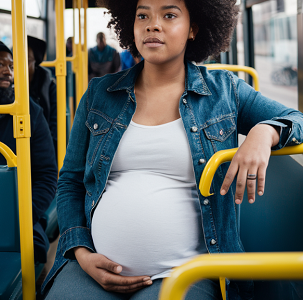A recent study presented at the Infectious Disease Society for Obstetrics and Gynecology 2024 Annual Meeting has revealed a significant link between transportation insecurity and lower influenza vaccination rates among pregnant individuals, with pronounced racial and ethnic disparities. The research highlights how lack of reliable transportation disproportionately affects pregnant women of color, contributing to lower flu vaccination rates.
The study found that transportation insecurity, defined as the inability to access safe and reliable transportation, was reported by 20.5% of Black pregnant patients compared to 8.6%of White patients. Hispanic and Asian patients also experienced higher rates of transportation insecurity at 10.4% and 11.5% respectively. This disparity in transportation access translated directly to vaccination rates, with only 16.3% of transportation-insecure individuals receiving flu shots compared to 40.7% of those with reliable transportation.
Income and insurance type also played crucial roles in both transportation access and vaccination rates. Uninsured patients and those with government-sponsored insurance were more likely to face transportation barriers. Additionally, households with annual incomes under $25,000 reported a 22.6% transportation insecurity rate and only a 23.9% flu vaccination rate, compared to 1.3% and 50.2% respectively for those earning $50,000 or more.
These findings underscore the complex interplay between socioeconomic factors, race, and health outcomes. The researchers emphasized the need for interventions to expand prenatal care access, particularly for minority and low-income communities, to address these disparities and improve maternal and infant health outcomes.
See “Transportation insecurity lowers flu vaccination in pregnant individuals” (August 6, 2024)


